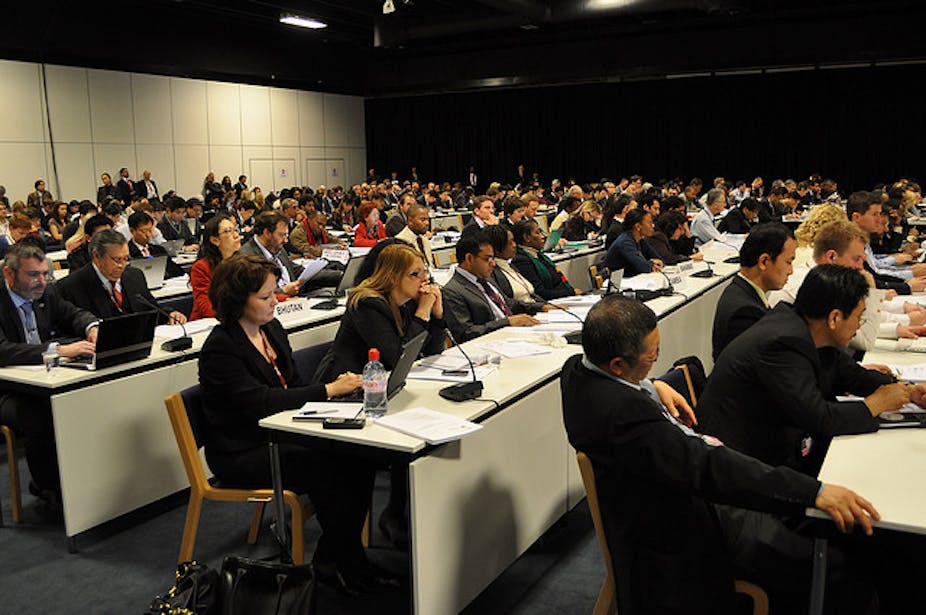Time has run out for governments to reduce carbon emissions gradually and only drastic reform can keep catastrophic global warming at bay, a panel of climate change experts said on Friday.
Speaking ahead of the UN Framework Convention on Climate Change Conference COP (Conference of Parties) 18, which opens in Doha on Monday, experts said there was no time to wait for international agreement on the issue.
“Personally, I stopped taking notice of those COP negotiations some years ago,” Patrick Hearps, a Research Fellow at the University of Melbourne’s Energy Institute, said at a press conference organised by the Australian Science Media Centre.
“The way to really quickly change the game and shift the process out of the very bogged down negotiations is for individual countries simply to show leadership,” Mr Hearps said.
For example, Germany’s investment in solar energy had made the technology cheaper worldwide and popularised it in Africa and India, he said.
“Germany didn’t wait for the other 191 countries of the world [to agree].”
He called on Australia to invest heavily in public transport, which would cost a lot initially but save money over time as fossil fuels become dearer and cause expensive environmental damage.
David Karoly, Professor of Climate Science and ARC Federation Fellow at the University of Melbourne, warned that failure to radically cut greenhouse gas emissions put the world at risk of a change more drastic than the warming of the Ice Age.
“For business-as-usual emissions, we have a 25% risk of exceeding six degrees of warming above pre-industrial levels,” he said.
“That would change the planet to a very, very different Earth system. The change from the last Ice Age to the present temperatures was around five degrees globally and we are talking about even greater warming from an already warmer climate.”
The 1997 Kyoto Protocol, which set binding emissions targets for industrialised countries, is due to expire this year. The 192 countries attending the COP talks have so far been unable to agree on a plan to extend or replace it.
Dr Karoly said it is unlikely that there will be any such agreement arising out of the climate talks starting on Monday in Doha.
“I am optimistic there will be progress made. I am not optimistic that there will be a binding agreement on emissions reductions achieved at this COP,” he said.
Ian Dunlop, director of non-profit organisation Australia 21, said the world was facing a future where the energy needed to create power exceeded the energy such efforts yielded.
“Climate change has now moved into a new and highly dangerous phase. It is, in fact, the most urgent issue the world now has to confront,” he said.
The time for a gradual phase-out of fossil fuels had passed, he said.
“You really have to move to an emergency response.”

